Scottish soul-pop singer Joesef meets novelist Douglas Stuart
The two Glaswegian artists meet for a chat about their shared backstories and mutual areas of artistic exploration
By Craig McLean
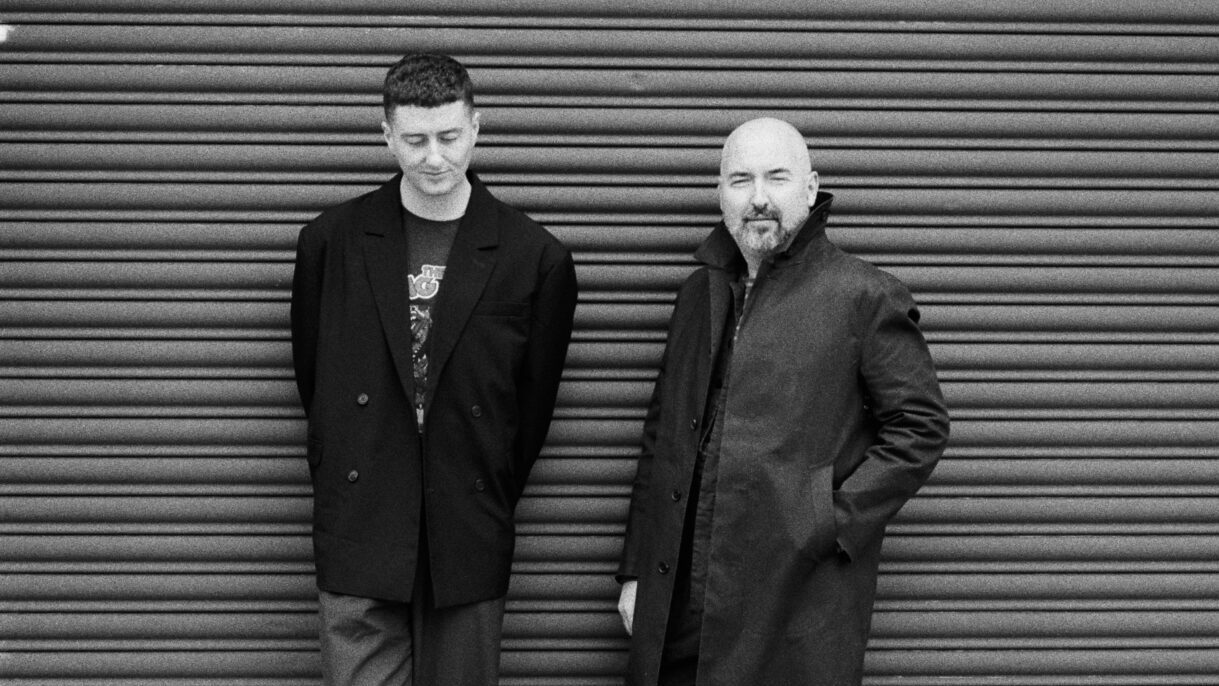
Pop singer Joesef and writer Douglas Stuart are in their respective Zoom boxes, chatting 10 to the dozen, “just talkin’ shite”, the musician says cheerfully. Both are already in full, relaxed Glaswegian patter mode. They’re also in the gig zone. Last night, Joesef — whose debut album of burning blue soul is released early next year — performed to a rapturous crowd of true believers at London’s 100 Club. Meanwhile, Stuart — author of the 2020 Booker Prize-winning Shuggie Bain — is about to head off on a book tour of Canada.
Both Joesef and Stuart hail from Scotland’s biggest city, and while they’re each now far from Glasgow (the musician in London, the novelist in New York) and almost a generation apart, their bonds run deep. When he was writing the 13 songs for the heart-baring, emotionally literate Permanent Damage (released 13 January 2023), Joesef, 26, took inspiration from Stuart. Shuggie Bain, the 46-year-old’s first book, is about a kid growing up in poverty in Eighties Glasgow, wrestling with his mother Agnes’s alcoholism and his burgeoning sexuality. As a young queer guy from the same part of the city, Joesef found in Shuggie Bain a story that he could relate to.
The love goes both ways. Stuart and his husband have been listening to Joesef’s music since the singer/songwriter broke through on the BBC’s Sound of 2020 poll. He sees a particular connection between Joesef’s songs and personality and the protagonist of the author’s second novel, this year’s Young Mungo, about a teenage lad embarking on a secret love affair in the shadow of thuggish older brother. “What Joseph does is so inspiring and interwoven with the world of Mungo,” says Stuart of his fandom for the singer. “That clear, masculine gang environment. That tribal thing that happens in the East End of Glasgow.”
Below, singer and author discuss their shared backstories and their mutual areas of artistic exploration.
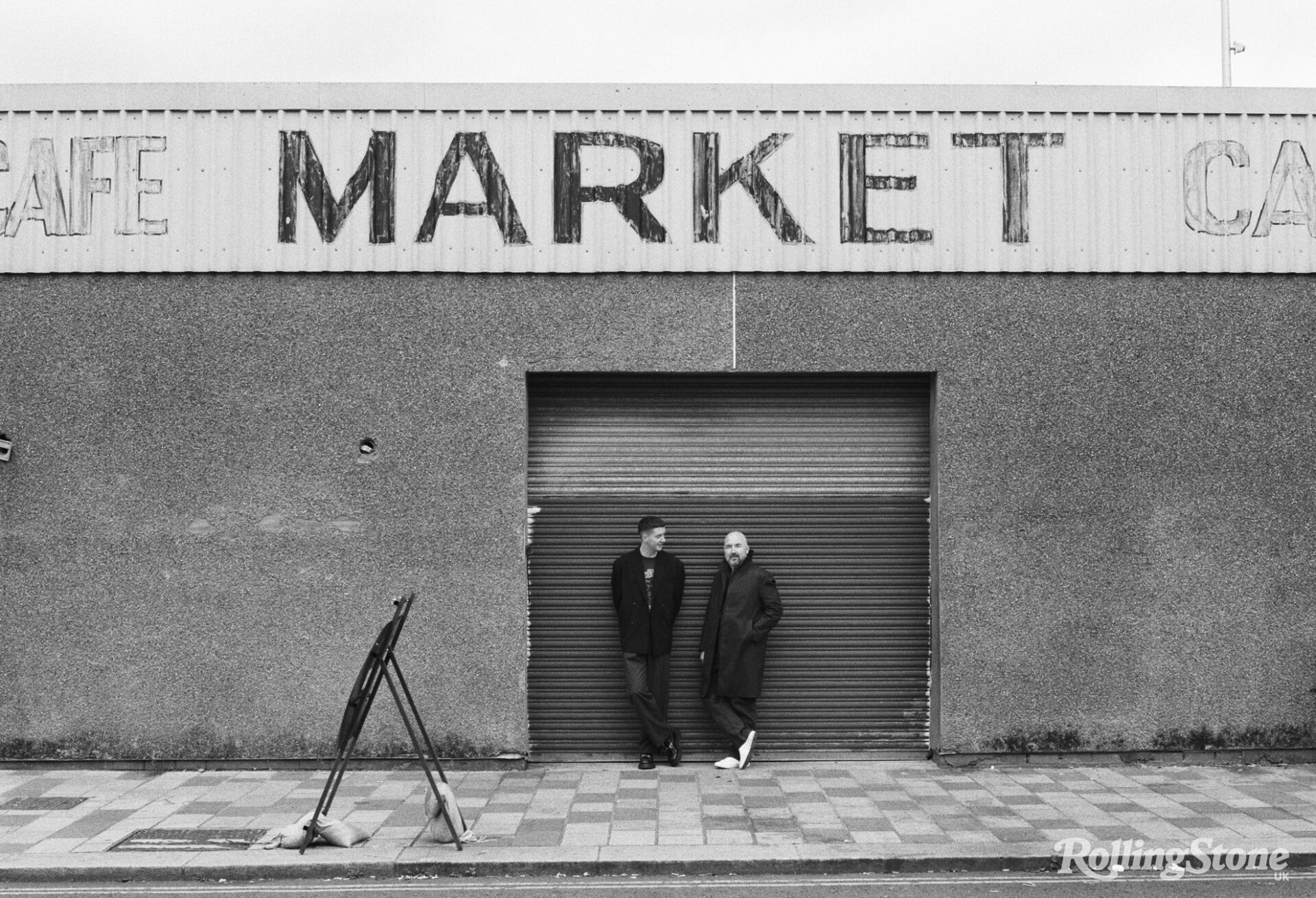
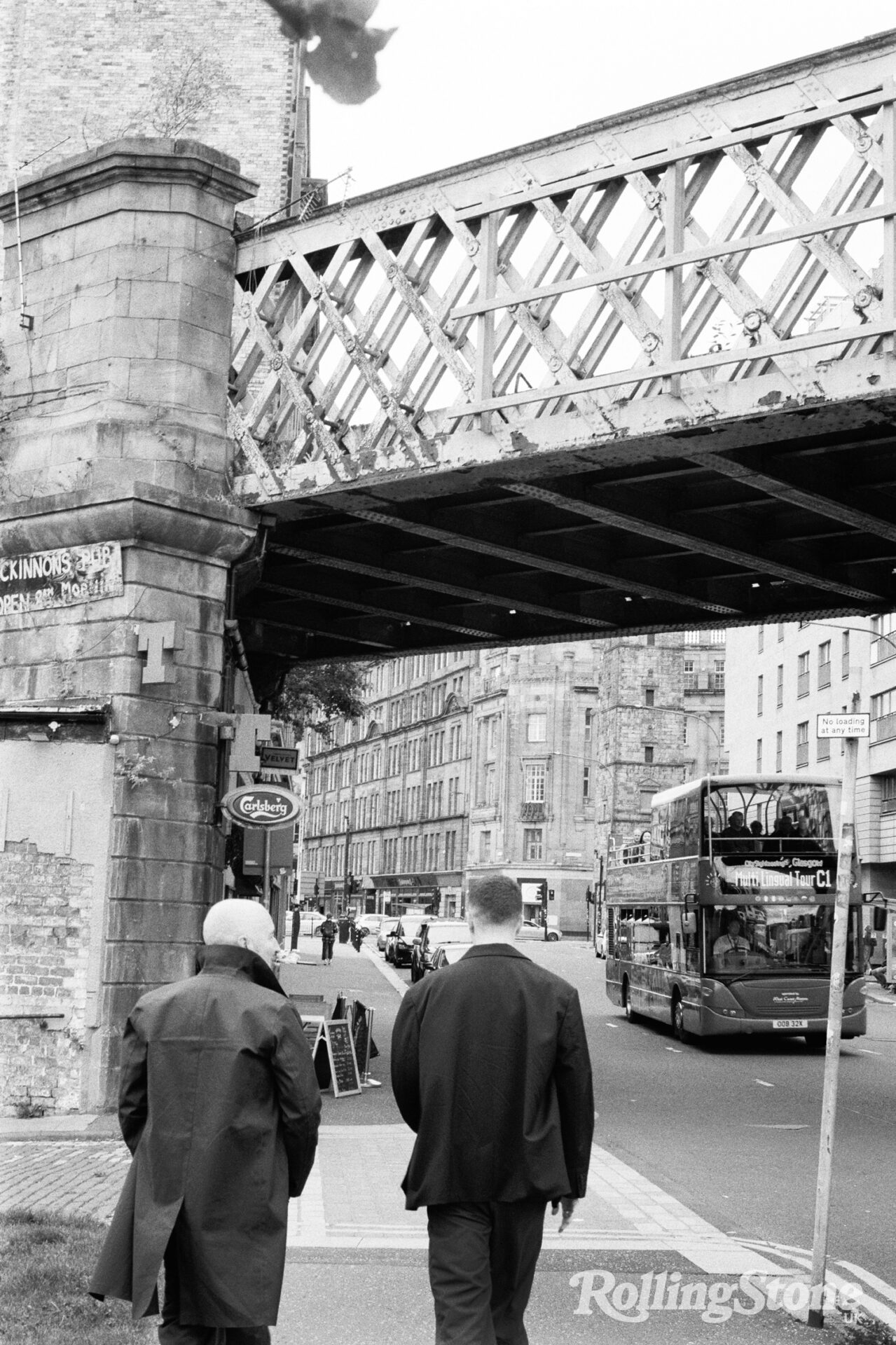
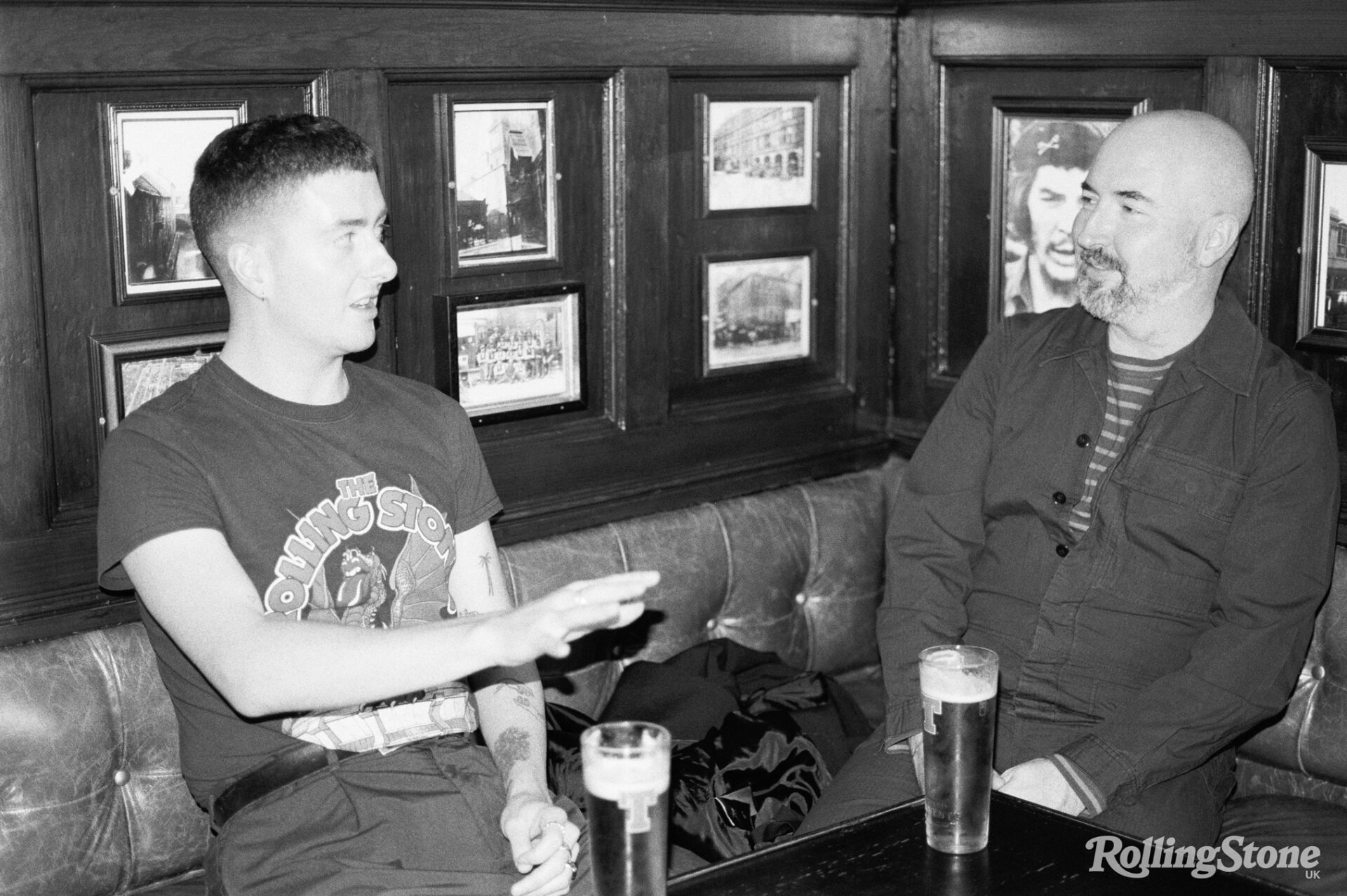
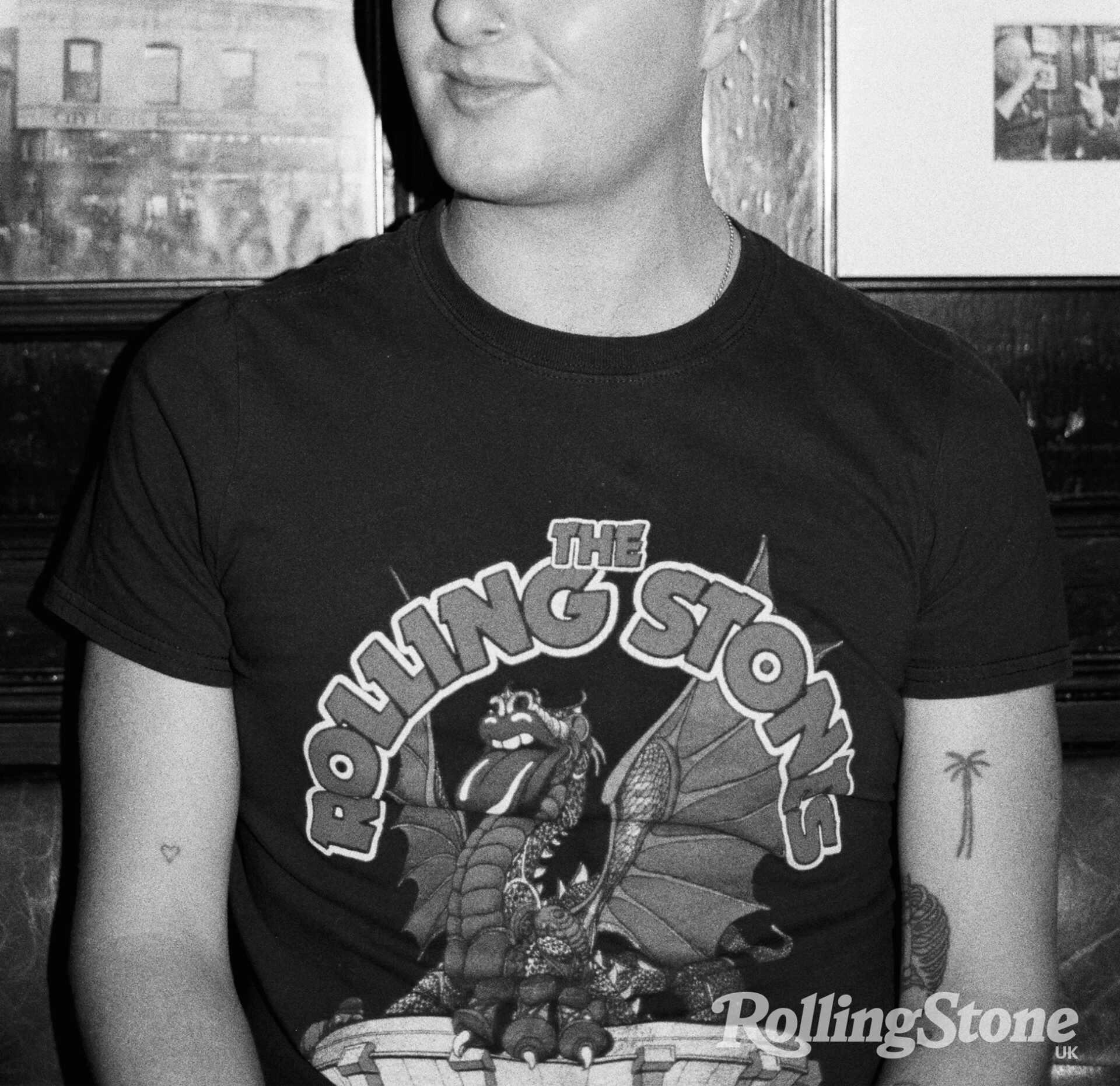
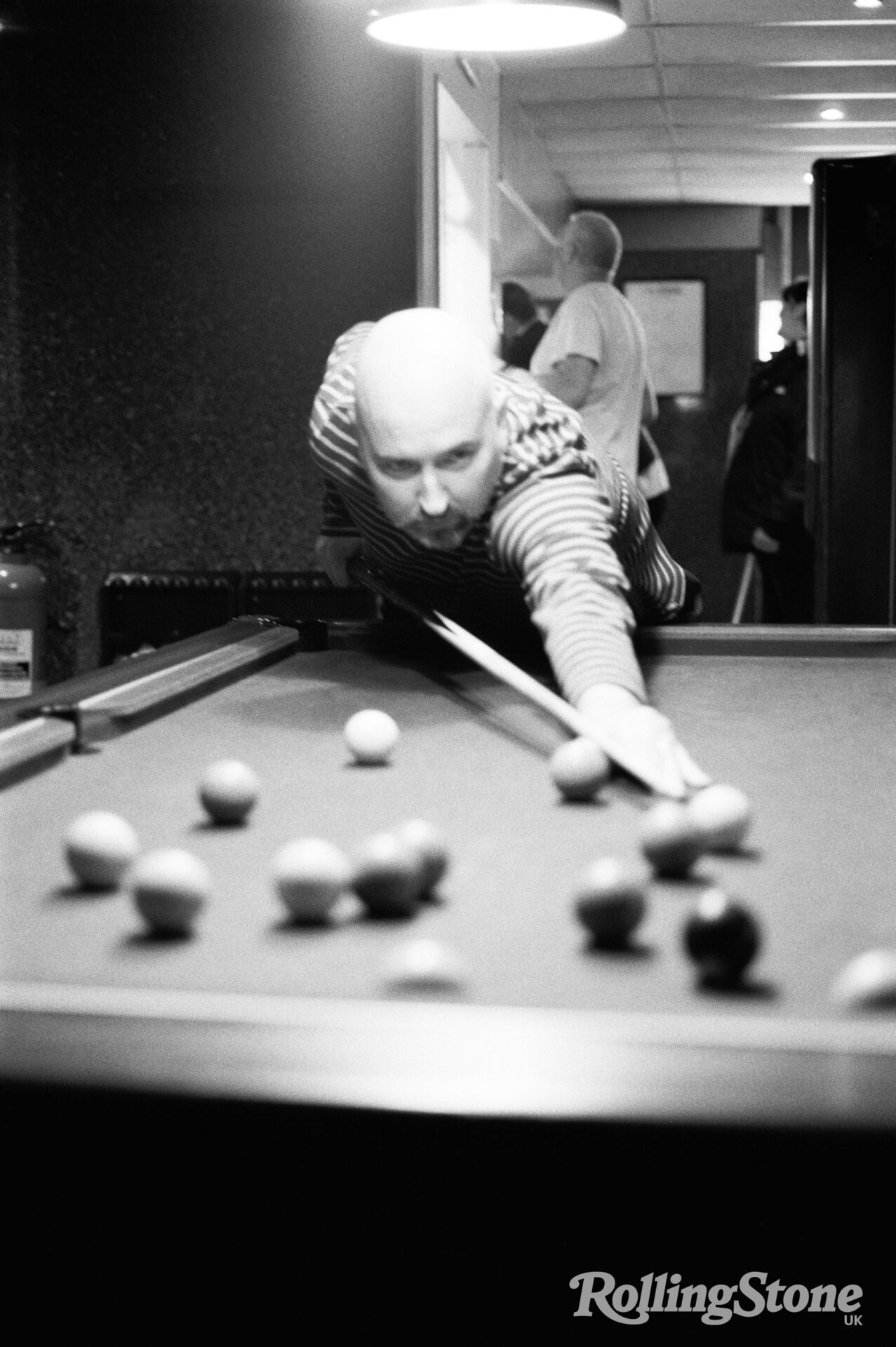
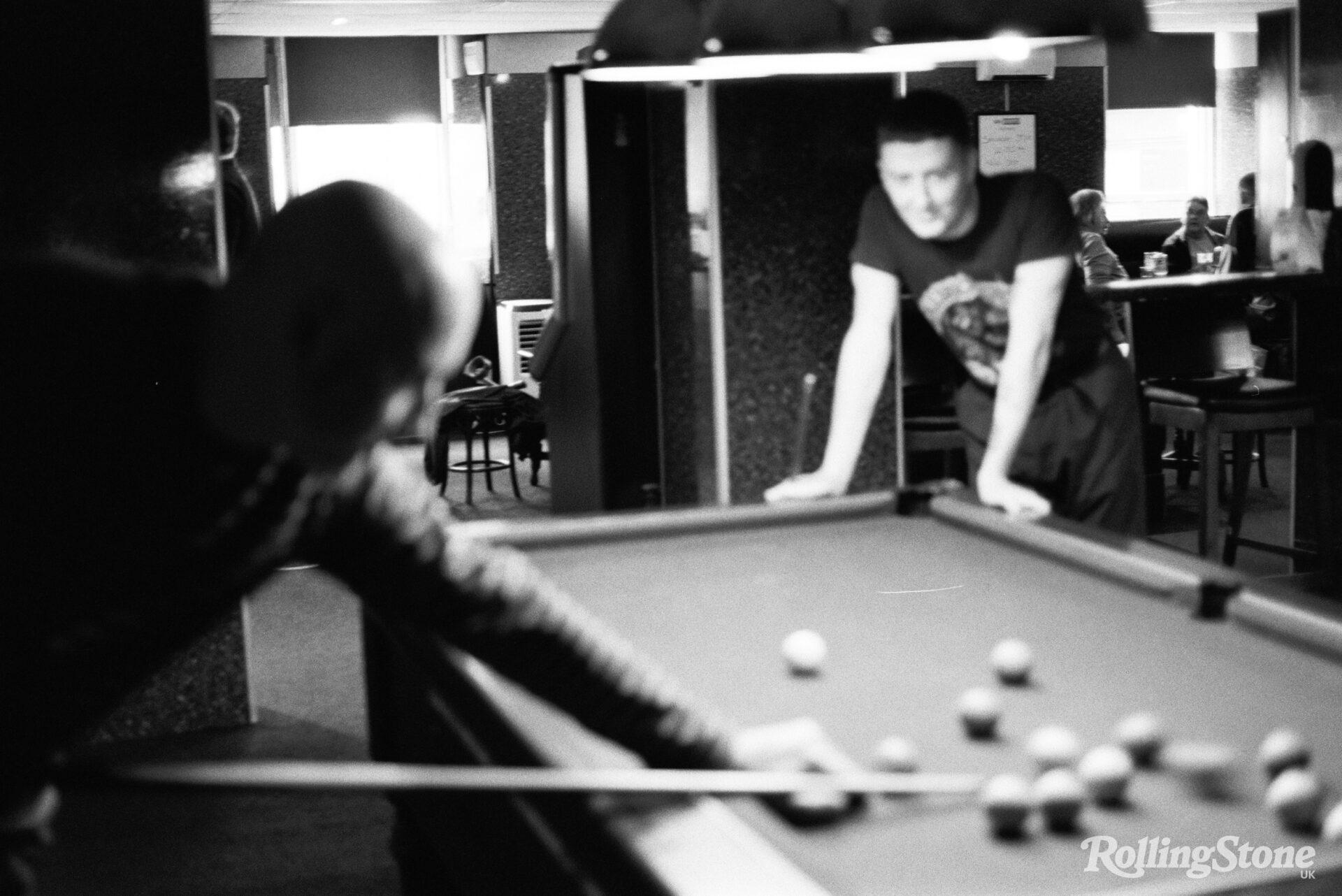
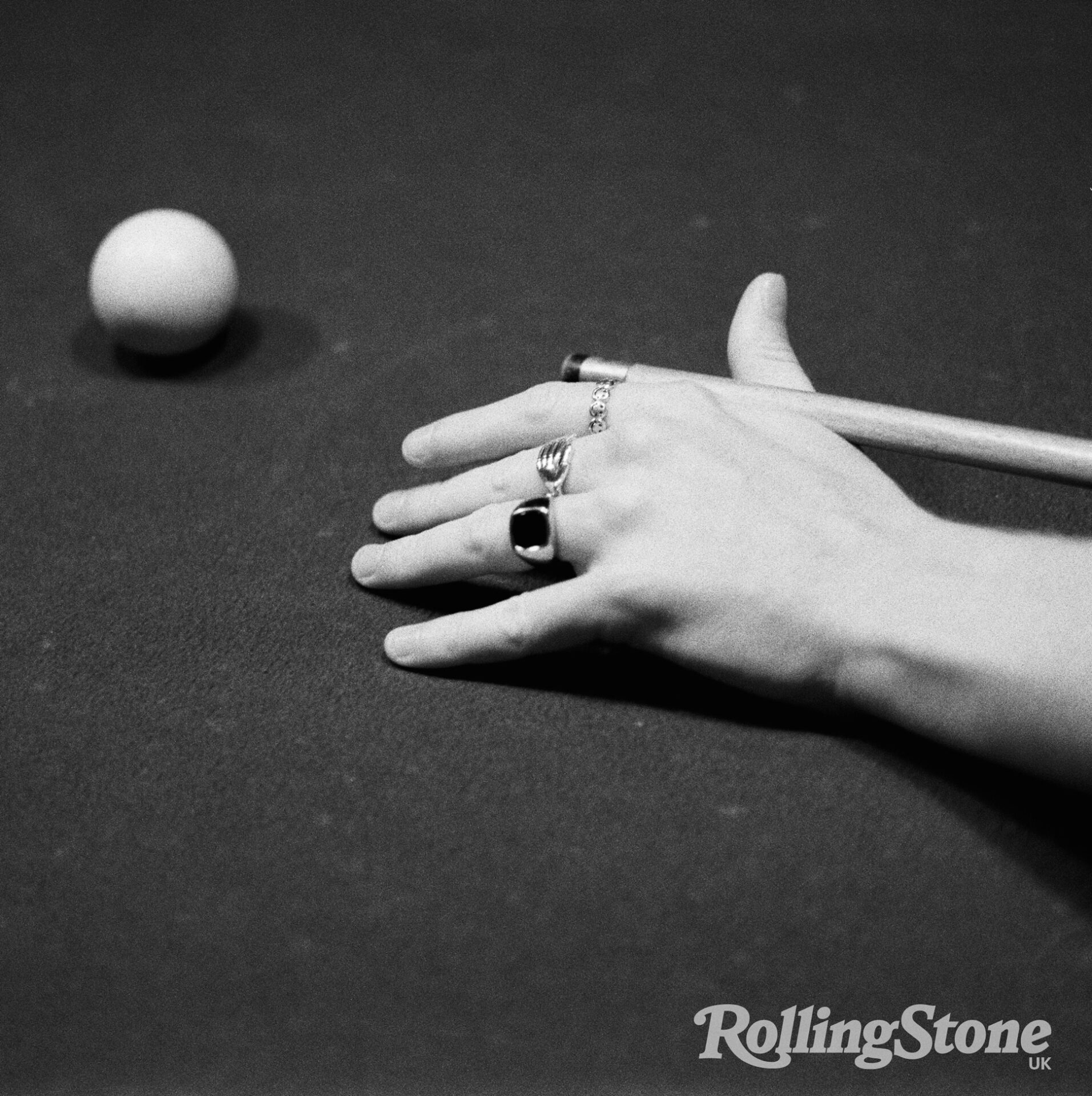
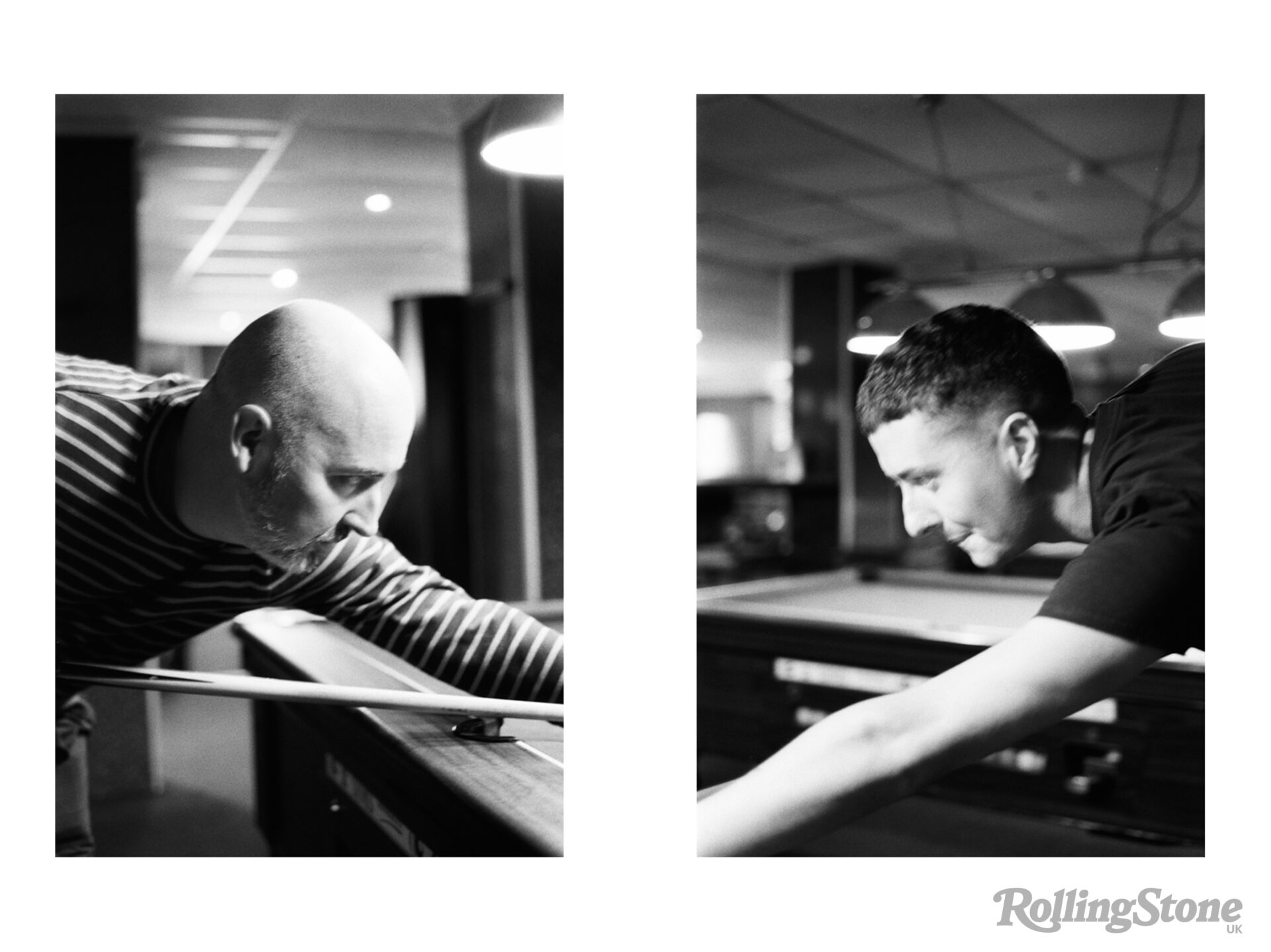
Joesef, I could see you were high on the crowd feedback last night.
Joesef: I always find it intoxicating being on stage. It’s something I never took into consideration when I started writing music. When I get up there, it’s like you become this other person. It’s instant feedback. You get to see all these people that have put you there as well, which is an amazing feeling.
Douglas, this year, you’ve toured more than most musicians manage in a regular year. How has the experience been, bringing Young Mungo to life onstage?
Douglas Stuart: Oh, it’s been wild. I find being on stage a bit traumatic, because I think writers by nature are introverts. Nobody told me when I was writing my books that I’d have to get up and do that. But it’s been crazy to see how universal the human condition is. To be in Portugal, Canada, Norway, Finland and Poland, and to have them be able to understand Agnes, Shuggie and Mungo — who to me feel like real local Glasgow characters. But I’m knackered! I think I’ve done about 80 cities in 18 weeks.
Joesef: He’s a fucking rock star, man!
Douglas Stuart: No! There’s no groupies for me!
What was the connection and kinship, Joesef, you felt when you first read Douglas’s work?
Joesef: The instant representation of what it was like to grow up as a young queer guy in Glasgow — as well as the stories that my mum had told me about what it was like for her. Because Shuggie Bain is more my mum’s time: people drinking vodka out of mugs in the garden. Not my mum personally!
The same with Mungo. Fucking hell, if I’d read that when I was 15, I genuinely would need to get hospitalised! “You can meet people in the [housing] scheme that are gay?” When I read his books, I instantly felt like I was home, which was mad to feel in a book. So, Douglas, thanks for that!
“I find that reading books like Douglas’s inspire me to simplify [my lyric writing] so it can be even more accessible. A lot of my favourite singers and writers are great at that”
— Joesef
Douglas, when you first heard Joesef, were you hearing a voice that echoed yours, in musical form, that you hadn’t heard before?
Douglas Stuart: Absolutely. The thing that was so powerful about it was that it was a confident voice. It wasn’t apologetic. It was singing about love, and desire, and about failing in relationships. That’s why I loved it. And when I heard Joesef’s single ‘East End Coast’ recently, I thought to myself: “God, if Young Mungo had a theme tune, it would be that.”
What’s the narrative and geographical meaning of ‘East End Coast’, Joesef?
Joesef: It was a private joke between me and one of my mates — we used to call the River Clyde the East End Coast. It’s a fucking shit river, but it was the only body of water that was next to our gaff. Sorry, I should say ‘house’, we’re in Rolling Stone… I was actually reading Shuggie Bain when I was writing the song in the studio, and it just inspired me to give a wee shout out to my hometown and try and talk about it a bit more.
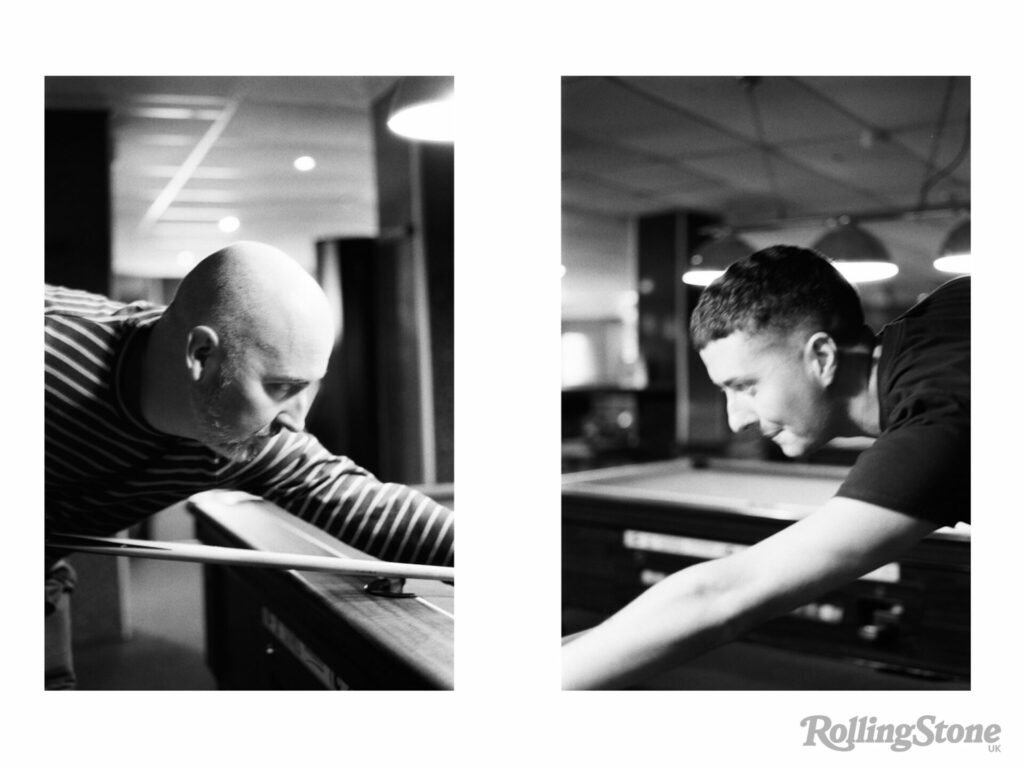
Something I noticed at your gig last night: the conversational element to your song titles and lyrics: “It’s been a little heavy lately…”; “I can’t seem to get you out of my head…”; “Just come home with me…” They’re immediately engaging, and the audience were bellowing the lyrics back to you. Was that something you consciously wanted to do as a lyric writer: make them relatable?
Joesef: I don’t know if I was trying to do that. I’m speaking to somebody about an event that’s happened. It’s a conversation between me and that person. That’s why the listener feels like I’m speaking to them, or they can put themselves in my shoes. I’d find big soliloquies hard to fit into a pop song.
But I find that reading books like Douglas’s inspire me to simplify it so it can be even more accessible. A lot of my favourite singers and writers are great at that. Phoebe Bridgers is amazing at being so specific about a certain subject — and, therefore, you just have a closer connection to it.
“For me, Joesef is the soundtrack of Young Mungo. I can’t say it officially but Young Mungo is going places as well for the screen”
— Douglas Stuart
Douglas, is that authenticity, and therefore accessibility, fundamental to your writing?
Douglas Stuart: Yeah, and I had to make some choices about who I was writing for as well. Obviously, literature’s quite a middle-class art form. It’s not as democratic as music, and as a working-class voice I had to decide: was I writing it for the characters, or for some bubble that existed in London or in New York?
But the thing that draws me to Joesef’s work is that there’s a lot about masculinity. And it’s the courage that Joesef has to be vulnerable on stage as well. That’s something about the Scottish spirit. It’s that ’take me or leave me, this is who I am’ attitude.
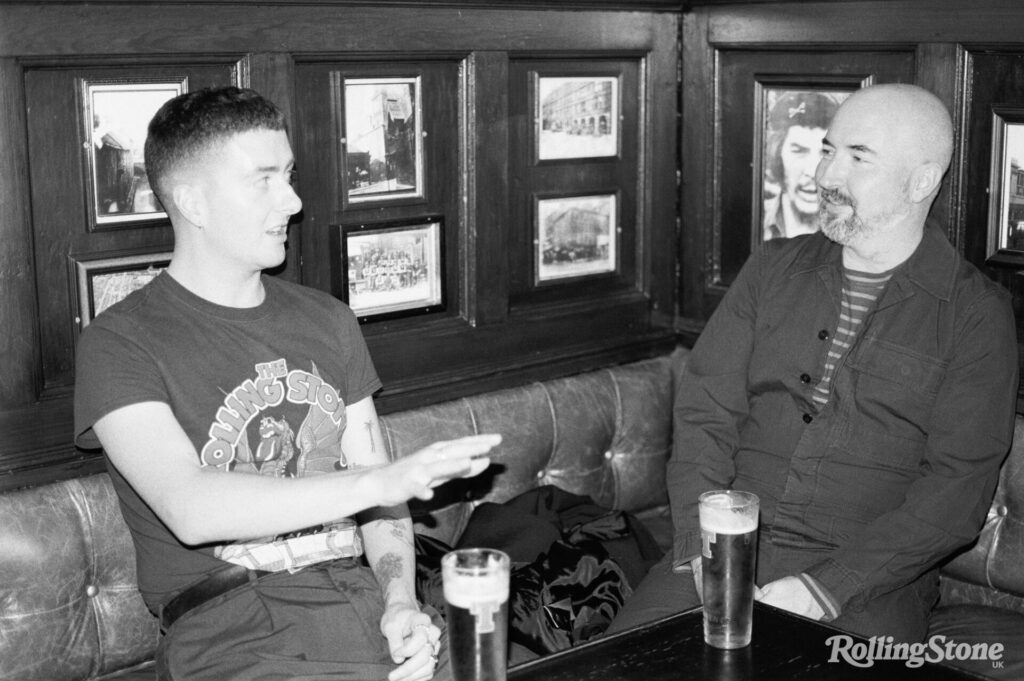
That connective tissue between each of you’s music and prose is apparent — as is the sense that you find support and reassurance in your writing. For you, Joesef, growing up queer in Glasgow, did it feel fundamentally lonely?
Joesef: I’ve definitely downplayed the effect that going up queer in Glasgow has had with my story, just because I don’t want that to be my narrative. I had two older brothers who were extremely masculine. You had to watch the way you talk, the way you walk. I was learning from them. And it’s embarrassing for me, looking back now, now that I have the mates that I have, realising that I could have been more comfortable with myself.
Douglas Stuart: I come from a place of deep sympathy even for straight guys in Glasgow, and how narrowly they were allowed to express their masculinity, as Joesef says. Getting slated even if you wore a wee bit too much colour, or you liked the wrong kind of music, or you had an inclination towards poetry. They were also confined by what was acceptable and what wasn’t. And a queer person was really on the outside of that. It was like being invisible.
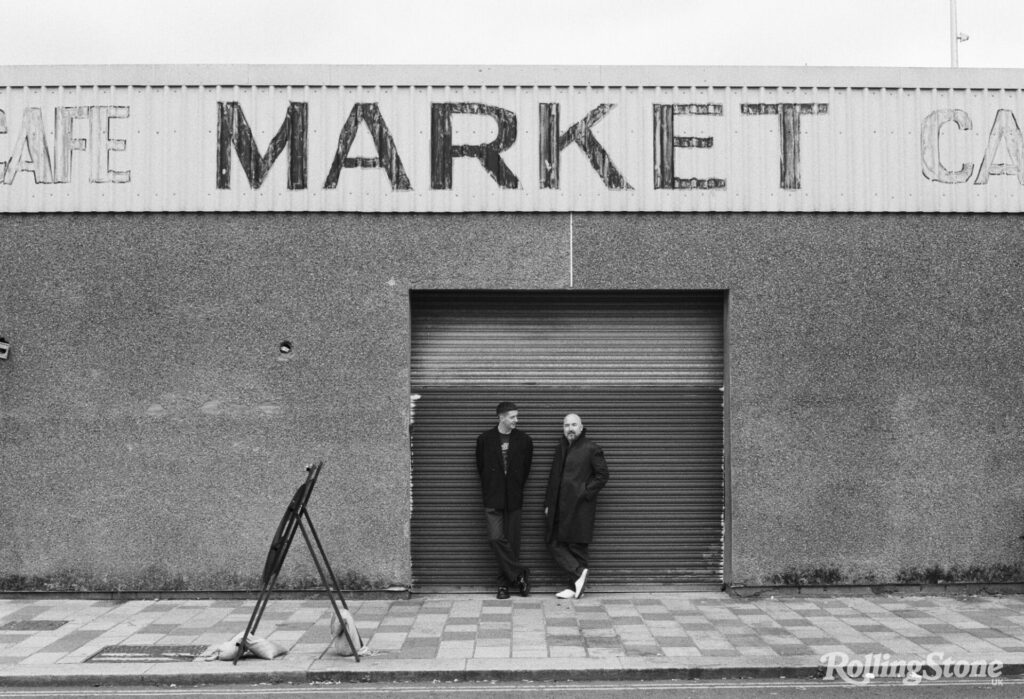
In terms of moving away from Glasgow: for both of you, did you have to do that to become the artist you wanted to be?
Joesef: Logistically, there’s more studios in London. But the work that I did in my flat in Glasgow got me to the place that I needed to be in, so that I could move to London and I could do this. Because I did it all through my bedroom — I just had my laptop and guitar and drum samples. I moved to London to broaden my horizons a wee bit. I think I’d shagged everybody there was to shag in Glasgow!
Douglas Stuart: Distance gave me a lot of courage. We’re all living lives that, unless we can step outside of them and look back, we don’t know how unique those lives are. And going to New York allowed me to look back and think: “God, those times were both really fucking hard and really singular.” So the distance allowed me to see things clearer. And I had not shagged everybody in Glasgow! I tried, but it didn’t work as well for me! I’m very proud of you, Joesef!
I’ll put you on the spot here, Douglas. You’ve been working on the screenplay for the TV dramatisation of Shuggie Bain. Is there space on the soundtrack for Joesef?
Douglas Stuart: Oh, I think absolutely. But for me, Joesef is the soundtrack of Young Mungo. I can’t say it officially but Young Mungo is going places as well for the screen.
Joesef: I mean, that makes me so happy. I will write a song for that, I will play a cameo, I will pull a pint in a pub… I will do anything!
Joesef is supporting Rina Sawayama on her UK tour, with a show at London’s Brixton Academy on 26 October. His debut album Permanent Damage is out 13 January.
Douglas Stuart’s second novel Young Mungo is out now.
